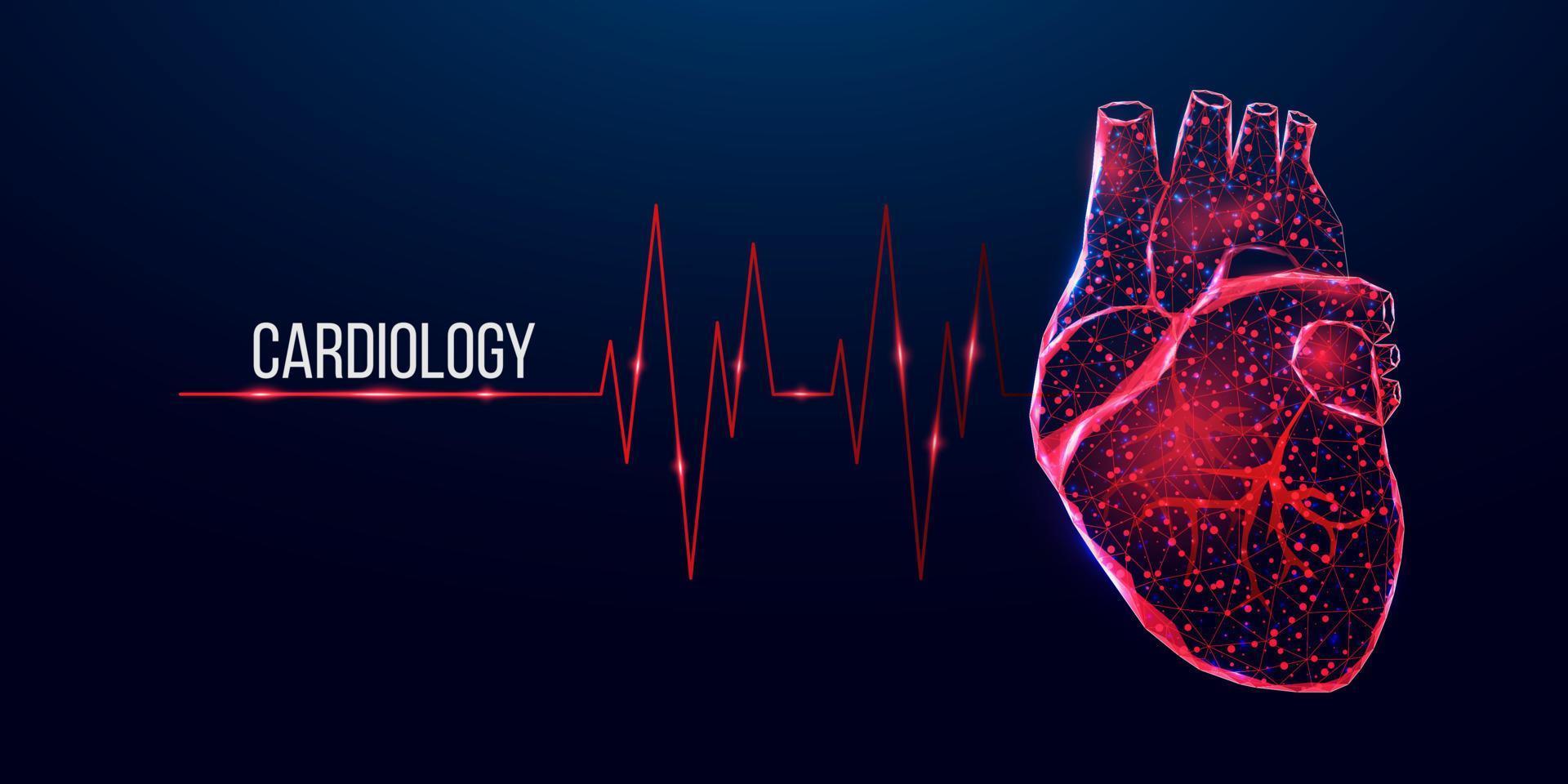Recognizing the Importance of Cardiology in Modern Healthcare Services
Cardiology plays a vital function in modern-day medical care, specifically as heart disease remains to be the leading reason for mortality worldwide. Advances in diagnostics and treatment have transformed patient care, enabling earlier interventions and boosted end results. Furthermore, the change in the direction of preventative cardiology encourages people to manage their health and wellness proactively. As technology remains to evolve, the integration of cutting-edge remedies might additionally redefine cardiology's effect on public health, prompting a more detailed exam of arising patterns and their implications.
The Frequency of Cardiovascular Disease and Its Effect on Public Health
Heart condition stays the leading reason of fatality globally, its influence prolongs much beyond individual people to affect public wellness systems and economic climates. The high prevalence of heart condition places a significant stress on healthcare resources, necessitating boosted funding for avoidance, therapy, and rehab programs. Public wellness efforts have to address danger factors such as weight problems, smoking cigarettes, and sedentary way of livings, which add significantly to the climbing occurrence of heart conditions.Moreover, the economic problem connected with heart problem is enormous, incorporating not just direct medical costs yet likewise indirect expenditures related to lost performance and early mortality. Communities deal with obstacles in managing these costs, commonly bring about disparities in health care gain access to and end results. As the populace ages and lifestyle-related risks remain to rise, the necessity for reliable cardiology treatments becomes critical. Addressing heart disease is not only an issue of specific wellness yet additionally an essential public wellness top priority.
Developments in Heart Diagnostics and Imaging Techniques
Recent developments in cardiac diagnostics and imaging techniques have changed the area of cardiology, improving the capability to keep track of and discover heart problem. Techniques such as heart MRI, CT angiography, and echocardiography have actually ended up being increasingly innovative, giving in-depth pictures of cardiac frameworks and functions. These modalities enable the very early identification of problems like coronary artery illness, cardiac arrest, and valvular disorders.Moreover, advancements in non-invasive diagnostics, such as wearable modern technology and remote tracking devices, have actually empowered patients and doctor. These tools promote real-time tracking of heart rhythms and various other necessary signs, bring about timely treatments. Furthermore, expert system is being integrated right into imaging analysis, enhancing accuracy and effectiveness in medical diagnosis.
Advancements in Treatment Choices for Heart Issues
Recent innovations in cardiology have brought about significant technologies in treatment choices for heart conditions. These include innovative surgical methods that boost procedural results and arising medications that use new opportunities for therapy. As the field advances, these innovations play an important function in boosting patient care and results.
Advanced Surgical Techniques
Innovations in medical techniques have actually transformed the landscape of cardiology, supplying brand-new hope for clients with heart conditions. Minimally intrusive treatments, such as catheter-based treatments, have actually significantly reduced healing times and health center stays. Strategies like robotic-assisted surgery improve accuracy, permitting surgeons to navigate complicated physiological structures with higher precision. Developments in imaging innovation promote real-time visualization throughout procedures, enhancing end results. Transcatheter aortic shutoff replacement (TAVR) exemplifies a development in treating aortic stenosis, enabling shutoff substitute without open-heart surgical treatment. In addition, hybrid strategies that incorporate catheter-based and medical approaches supply customized options for different cardiac issues. These innovative medical strategies not only enhance patient safety and security however likewise broaden therapy alternatives, highlighting the important role of technology in contemporary cardiology practices.
Arising Therapies and medicines
As the landscape of cardiology remains to develop, emerging treatments and medications play a crucial role in improving therapy options for heart disease. Advancements such as unique anticoagulants and advanced lipid-lowering agents have changed the monitoring of heart diseases, considerably reducing patient morbidity and mortality. Furthermore, the advancement of genetics treatments and regenerative medication supplies promising avenues for dealing with conditions formerly considered permanent. Clinical tests are constantly disclosing the efficiency of these treatments, pushing the boundaries of typical treatments. The assimilation of digital health innovations assists in customized medication, permitting for tailored therapy plans based on hereditary and way of life elements. Collectively, these advancements underscore the dynamic nature of cardiology, improving individual end results and redefining requirements of treatment in modern-day health care.
The Function of Preventive Cardiology in Patient Care
Precautionary cardiology plays a crucial duty in person treatment by focusing on the recognition of threat variables that add to heart problem. With way of living alteration approaches and very early discovery methods, doctor can effectively decrease the incidence of cardiovascular events - Cardiology Jupiter. This proactive method not only improves patient outcomes yet additionally advertises long-lasting health and wellness
Danger Element Identification
While heart diseases continue to be a leading reason for morbidity and mortality worldwide, effective threat variable recognition functions as a cornerstone of preventive cardiology. Recognizing danger elements such as hypertension, household, diabetes, and hyperlipidemia background is vital for early treatment. Medical care experts utilize numerous evaluating techniques to evaluate these variables, permitting tailored preventive procedures. Furthermore, understanding a person's way of living choices, such as smoking and physical lack of exercise, better educates danger assessments. This complete assessment allows medical professionals to create customized care strategies aimed at mitigating threats. By prioritizing threat factor identification, medical care systems can improve person end results and lower the total problem of heart diseases, eventually adding to enhanced public wellness techniques and resource appropriation.
Lifestyle Modification Strategies
A wide variety of studies highlights the critical duty of lifestyle modification techniques in lowering cardio condition threat. These strategies encompass dietary changes, increased exercise, smoking cessation, and weight administration. By adopting a heart-healthy diet rich in fruits, vegetables, whole grains, and lean proteins, people can decrease cholesterol degrees and high blood pressure. Regular physical task strengthens the heart and improves general cardio health and wellness. In addition, stopping smoking cigarettes significantly lowers the threat of heart problem and improves recuperation rates for those with current conditions. Weight administration further adds to cardio health and wellness by reducing various other risk variables such as diabetic issues and hypertension. Implementing these lifestyle changes not only promotes specific health yet additionally works as a keystone of precautionary cardiology in individual care.
Early Discovery Methods
Lifestyle modifications greatly contribute to lowering heart disease risks, yet they are most efficient when paired with very early discovery methods. Precautionary cardiology emphasizes the value of determining potential heart concerns before they rise into serious problems. Methods such as high blood pressure tracking, cholesterol screening, and progressed imaging technologies like echocardiograms play crucial duties in examining cardiovascular health and wellness. Biomarkers and genetic screening also improve the precision of very early discovery, enabling tailored preventative techniques. Normal cardiac danger article evaluations equip doctor to interfere proactively, potentially protecting against cardiac arrest and strokes (Dr Garcia). By incorporating these very early detection approaches into regular treatment, patients can gain from prompt lifestyle interventions and targeted therapies, inevitably improving outcomes and boosting lifestyle
Integrating Technology Into Cardiology Practices
As improvements in modern technology continue to reshape different areas, the assimilation of cutting-edge tools and systems into cardiology techniques has actually become vital for boosting patient care and results. Telemedicine systems allow cardiologists to check patients remotely, enhancing access to care while minimizing the burden on health care facilities. Wearable gadgets, such as smartwatches, allow constant heart price tracking, informing both medical professionals and patients to potential issues in real-time. Additionally, artificial intelligence (AI) is being utilized to analyze vast quantities of heart data, assisting in early medical diagnosis and personalized therapy strategies. Advanced imaging methods, consisting of 3D echocardiography, boost visualization of heart frameworks, causing a lot more accurate interventions. Digital wellness documents (EHRs) improve individual info administration, guaranteeing that cardiologists have immediate accessibility to critical data. Together, these technical developments are changing cardiology, promoting proactive monitoring and enhanced health outcomes for people with cardiovascular conditions.
The Significance of Person Education and Involvement
Client education and learning and interaction play a critical duty in the administration of cardio health. By outfitting clients with expertise about their problems, therapy choices, and way of living modifications, doctor encourage individuals to take an active duty in their treatment. This positive method can bring about improved adherence to suggested drugs, nutritional changes, and exercise routines, inevitably decreasing the threat of complications.Engagement additionally fosters a strong patient-provider connection, urging my sources open communication and count on. When individuals really feel informed and included, they are a lot more most likely to voice concerns and ask questions, which can result in much better scientific end results. Additionally, academic resources, such as workshops or electronic systems, can improve understanding and advertise self-management approaches. On the whole, focusing on patient education and interaction is necessary for boosting cardio wellness, enhancing lifestyle, and minimizing medical care expenses related to cardio conditions.
Future Fads in Cardiology and Their Prospective Effect

Frequently Asked Inquiries
What Way Of Living Adjustments Can Decrease Heart Problem Risk?
The existing concern addresses way of life changes that can significantly reduce heart problem danger. Cardiology Jupiter. Embracing a balanced diet regimen, involving in routine physical activity, maintaining look at more info a healthy weight, taking care of tension, and avoiding cigarette can significantly improve cardio health
Just How Can I Acknowledge Early Indicators of Heart Issues?
Recognizing very early signs of heart troubles includes surveillance signs such as chest discomfort, shortness of breath, tiredness, and uneven heart beat. Prompt understanding of these indications can trigger necessary medical analysis and intervention for far better results.
What Are the Distinctions Between Cardiologists and Heart Surgeons?
The distinctions between cardiologists and heart cosmetic surgeons exist in their roles; cardiologists mostly diagnose and handle heart problems with non-invasive methods, while heart specialists perform surgeries to remedy structural heart problems. Each plays an essential, distinct function.

Just how Usually Should I Obtain My Heart Health And Wellness Checked?
The regularity of heart medical examination varies based upon specific danger elements. Generally, grownups need to go through assessments every one to 2 years, while those with current conditions might need more constant evaluations as recommended by healthcare specialists.
What Function Does Genetics Play in Cardiovascular Disease Danger?
Genetics substantially influences heart disease threat, with domestic patterns indicating acquired conditions. Details genetics can predispose people to hypertension, cholesterol concerns, and other cardio problems, highlighting the relevance of genetic testing in assessing heart health. Heart illness remains the leading cause of fatality worldwide, its impact prolongs much beyond specific patients to influence public health systems and economic situations. Public health efforts must attend to threat elements such as excessive weight, cigarette smoking, and less active lifestyles, which contribute substantially to the rising occurrence of heart conditions.Moreover, the financial burden connected with heart condition is immense, including not just straight medical expenses yet also indirect expenses associated to shed productivity and premature mortality. Precautionary cardiology plays an essential role in individual treatment by concentrating on the identification of risk elements that add to heart condition. Artificial intelligence (AI) and device discovering are boosting diagnostics and person monitoring, enabling early detection of heart illness. The differences in between cardiologists and heart specialists exist in their duties; cardiologists largely detect and manage heart conditions with non-invasive techniques, while cardiac specialists do medical treatments to remedy structural heart problems.